It seems hard, doesn’t it — you listen to a song and think everything from “I wonder how many people were involved in making this” to “I don’t even know what that instrument is”… but at the same time it feels like you could do it — you make songs in your head and think “if only I knew where to start”… good news! Music production can be self taught, and there’s a good chance that a bunch of your favourite artists did just that!
How to Start Making Your Own Music
Fundamentally, making music is a creative pursuit. It’s really easy to get bogged down in the depths of the technical requirements of music production, but the key to success is to just start. Learn as you go.
Okay… but where do you start?! Let’s take a look at the fundamentals. Working backwards, you hear a song on Spotify:
- That song was recorded into an audio file, and made from individual sounds all set up to play side by side and in order in something called a sequencer. In this sequencer, the melodies and timing are all defined so they’ll play the same every time, recorded in so that they don’t have to be played live.
- All of the different sounds are mixed in volume and tone so that they sit well together and we focus on the right things.
- Depending on the technique, some sounds are recorded into a sequencer as audio files, from a microphone or a special input on the device the producer is working on, or the audio files containing the fundamental musical ideas are provided by someone else for the producer to work with, or the sounds are generated by devices that are triggered by information the producer records into the sequencer about the notes that should be played — with a technology called MIDI.
- The music producer decides what kind of song they want to make and set up their equipment in the basic musical environment that will accomplish it — defining things like the tempo (how fast the song is), the time signature (how the rhythm feels)
So going forwards now, all you have to do is sit with the devices you’re going to make music with, decide what you’re aiming for, record or import the melodies, basslines, drums and so on into a sequencer, arrange them from start to finish into a song, then make everything sit well together at the right volume and export it ready to share. Simple, right? Trust me, this really isn’t that much of an over simplification
Equipment Used for Music Production
By far the most common way to make music today is by using a computer. A single piece of software can be used to take care of everything we’ve just talked about, from recording to sequencing to mixing and exporting, and we call this software a Digital Audio Workstation — or DAW. There are lots of different DAWs, and most of them have the same fundamental workflow but different specialisations that give us lots of choice about which one jives with us the most. The most common and popular DAWs include Ableton Live, Logic Pro, FL Studio, all of which have free trials. These DAWs have instruments, effects, the ability to record audio and MIDI, mix, and export your songs.
You don’t have to use a DAW, though, and there are hundreds of devices that let you stay well away from a computer while still giving you the capability to make music. The Akai MPC Live II, the Roland SP 404 Mark II, and the Elektron Octatrak are three such devices, and while they all have different levels of capability it’s completely possible to make entire songs using just them. You can even use your phone, with Koala for iOS and Android an incredible, low priced music making tool.
As you learn more and more, you’ll be able to add devices that do a specific thing to your workflow, such as a keyboard that plugs into your computer and allows you to play notes in a more natural way, to microphones and instruments that allow you to record yourself singing or playing guitar, to dedicated effects devices that you can run your sounds through and record them.
Things You Must Learn to Make Music
There’s no getting around the fact that music production is a vast, never ending topic. Be smart, be goal focused. It’s all too easy to fall into the trap of trying to learn everything and never actually making music, but the reason we started off going backwards from the end when we looked at how a song ends up on Spotify was to try to hammer home how if your goal is to make music, then breaking down the barriers to get there is all you need to do.
Here are the key things that every music producer must learn:
- Basic music theory is super important. Don’t worry: music theory isn’t just academic, it’s the expression of a practical need to make music. Take tempo, for instance. Measured in beats per minute, or BPM, if we don’t get our heads around what a ‘beat’ is, then we’ll be forever confused by why things don’t line up right in our sequencer.
- How sound works is really important to understand on a fundamental level. We’re not talking maths homework, but understanding how sound is just energy that we sense with our hearing and that being able to manipulate that energy is the key to making music is what unlocks our ability to do everything from adjust the volume of each of our instruments to make them sound good together to knowing how to turn the knobs on a synthesiser to get the sound that’s in our head to come out of it.
- The basic studio workflow from using recordings or instrument devices, triggering them in a sequencer, sending them through effects, and adjusting them in a mixer. It doesn’t matter which DAW or device you use, when you get your head around the ‘order of operations’ and how we get from nothing to that exportable end point then switching to new devices, DAWs, or anything else will just make sense, because there’s a fundamental way that everything works.
Everything else, whether it’s how to make your own sounds in a synthesiser to how to chop up samples from vinyl into hip hop beats, comes after these three basics. You only need to learn as much as you need to do the thing you want to achieve, and as you get more and more confident you’ll find yourself able to understand what it is you want to learn to achieve next.
How to Teach Yourself Music Production
There are thousands of hours of tutorials on YouTube, hundreds of courses on specific pieces of hardware and software, and libraries worth of books on music production. Being completely self taught is absolutely possible, but be prepared to build up your skills on weeding out the good advice from the bad, the experts from the arrogant. Here at How to Make Music we have two courses that are absolutely perfect for the self taught music producer, Essential Music Production and Essential Music Theory. In each we will go through all of the fundamentals in an easy to follow, innovative environment with video, audio, graphics and key takeaway bullets, taking absolutely nothing for granted and giving you the perfect accelerated foundation to make your own music confidently and have fun doing it!
Not only that, but compared to everywhere else we’ve found, nobody offers the value we do. Essential Music Production is just £149, and Essential Music Theory £99 — it’s actually a risk for us to offer them so inexpensively, because everywhere else offering anywhere like what’s contained in these courses is significantly more expensive so they might at first glance look ‘better’. The reason? We just want to help you make music. That’s it.
Essential Music Production
Let’s take a look at Essential Music Production and what it contains.
The DNA of a Song
We’ll get started from the absolute beginning. What sounds are we hearing in music and how to we characterise them:
- Character and Structure
- Drums and Percussion
- Bass
- Lead and Arrangement
- Atmosphere and Ambience
- Vocals
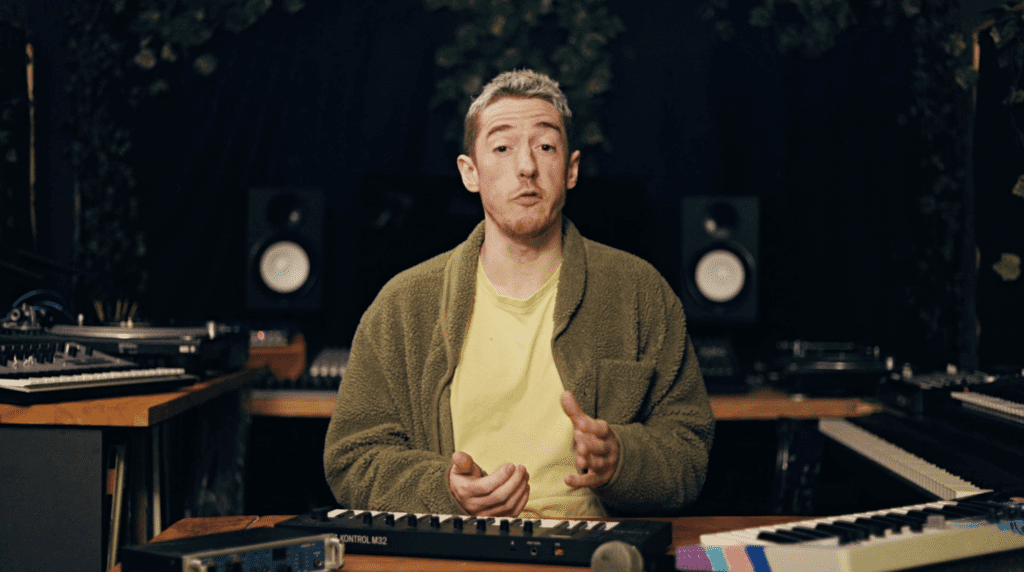
Studio Fundamentals
Whether hardware or software based, there is a basic workflow that all music production takes, and we’ll go through each step:
- The Music Production Workflow at a Glance
- What is Sound?
- The Principles of Recorded Audio and the Signal Chain
- Electronic Instruments
- Effects
- MIDI and Control
- Sequencing
- Mixing
- Mastering
- Hardware, Software, Analogue and Digital
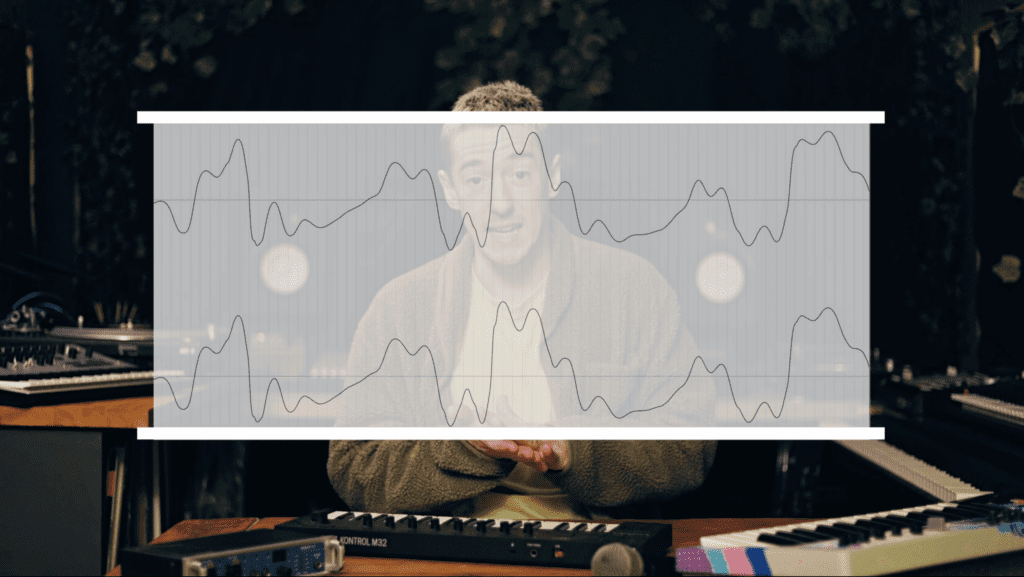
Instruments and Effects
Creating sounds is an important part of making music, and we’ll go through what the key instruments and effects are, how they work, and how to use them:
- The Principles of Sound Design
- Samplers
- Synthesisers
- Time-Based Effects: Reverb, Delay, Phasers and Flangers
- Dynamic Effects: Compressors, Expanders, Limiters, Gates, Sidechaining
- Harmonic Effects: EQ, Filters, Bitcrushing, Saturation and Distortion
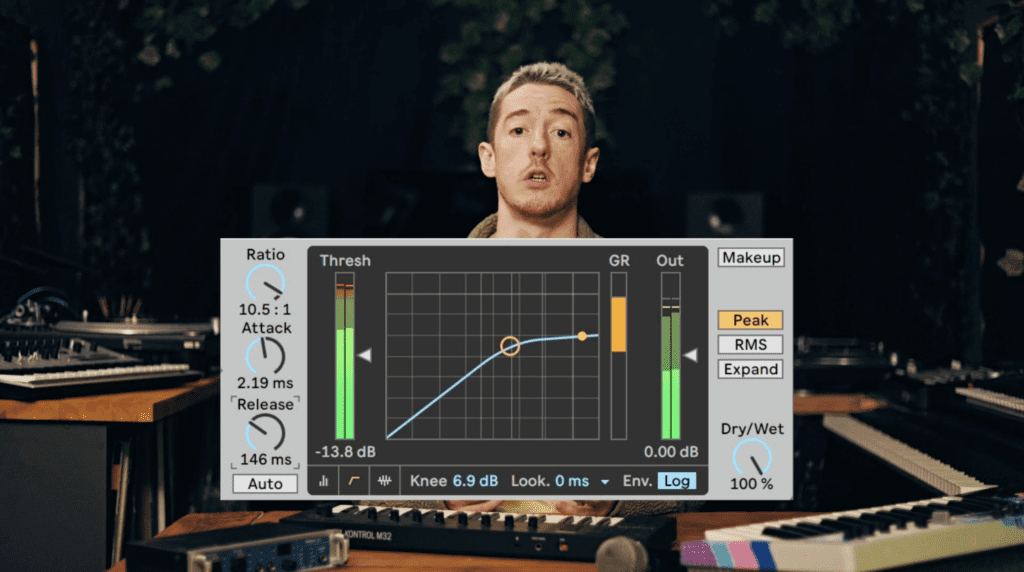
Software
Most people use software at least as part of their music production setup, and maybe completely. We’ll go through what different software does and how to get the best out of it, and look at the advantages of the key competitors on the market to help you make a buying decision:
- DAWs
- Plugins
- Latency
- Utilities
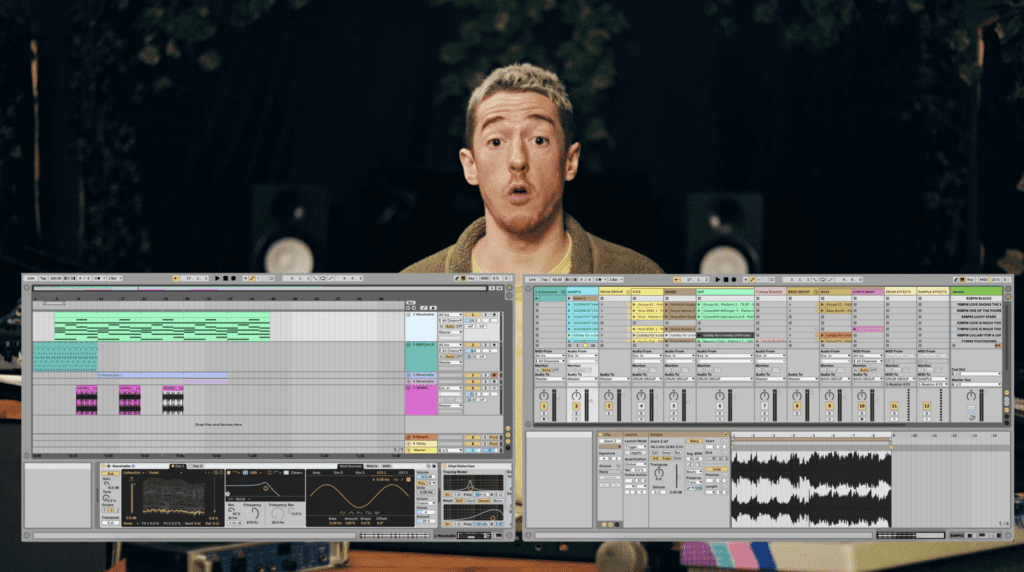
Hardware
With so much choice, knowing where to spend your money on hardware can be really daunting. We’ll explain exactly what different hardware is good for, what its key advantages are, and how to pick the gear with the right features for you:
- Computers
- Mobile Devices
- Speakers and Monitors
- Headphones
- Audio Interfaces
- Controllers
- Synths
- Drum Machines and Grooveboxes
- Workstation Keyboards
- Effects
- Mixers
- Microphones
- Portable Recorders
- Vintage Gear
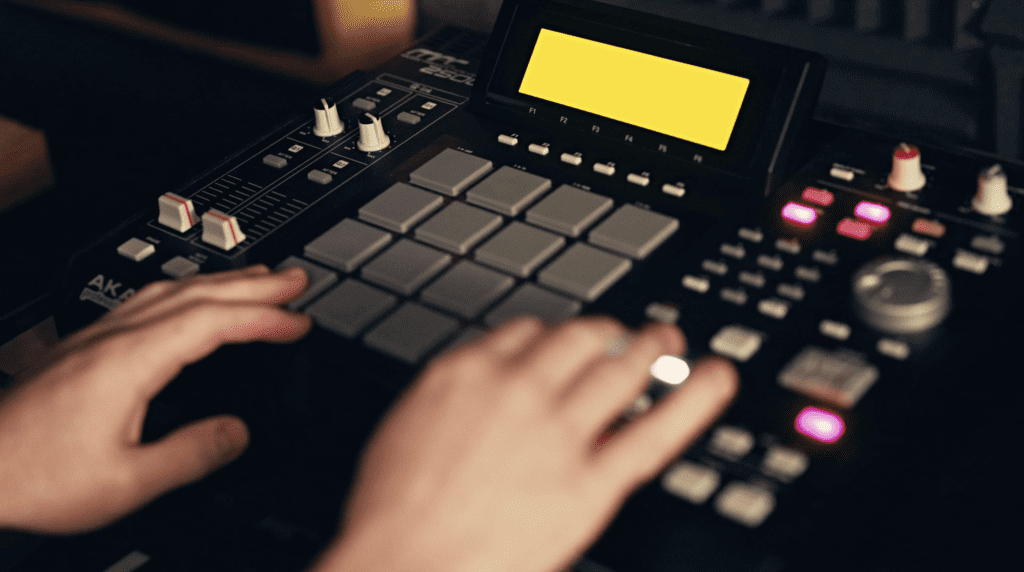
Connectivity
Connecting hardware and software can get confusing, and there’s more than you might expect to look out for. Here’s how we get the best value out of our hardware and software by making sure we’re connecting everything properly:
- Audio Cables
- Digital and Computer Connections
- MIDI and Control
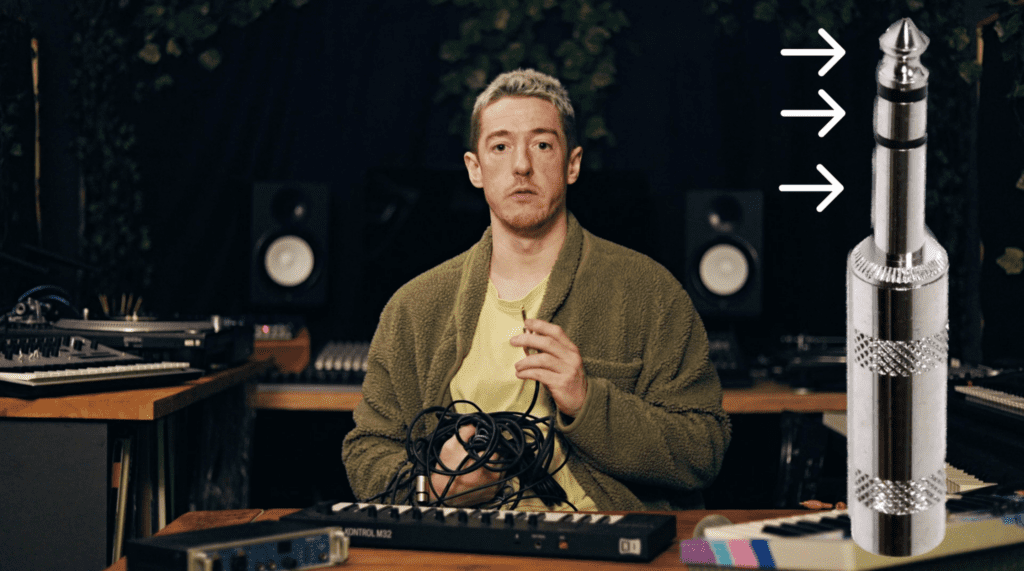
Extras
Knowing where to get sounds and what to pay attention to with licences and costs is really important, and so is making sure your listening environment sounds as pleasing and accurate as you can:
- Samples and Presets
- Room Treatment
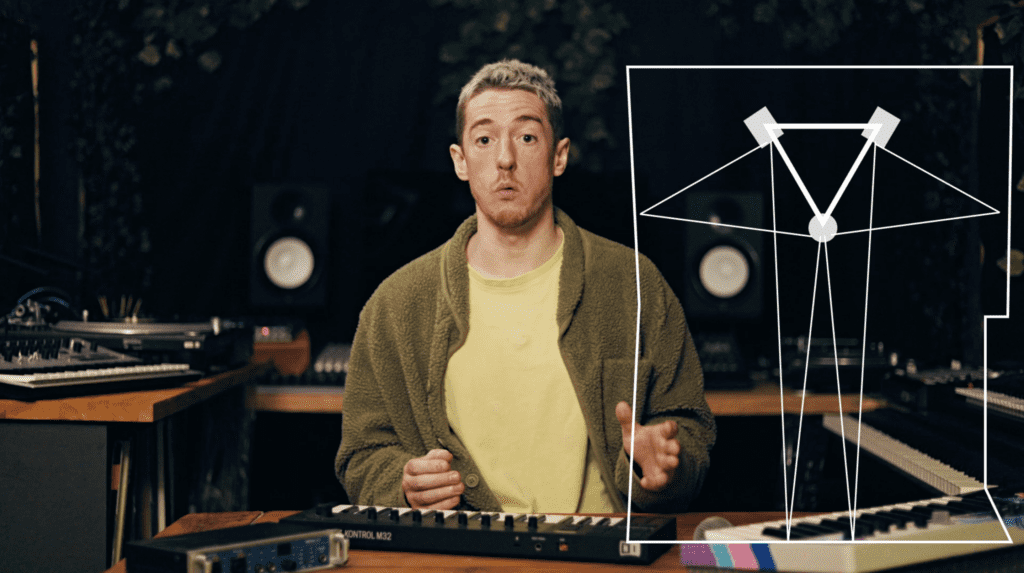
For £149, this is insane. This is a course that will give you everything you need to understand music production, what you have to have, what you don’t need, and all the decision making capabilities that will save you thousands in piecemeal courses and bad purchases.
Learn more about Essential Music Production!
Essential Music Theory
Now let’s take a look at Essential Music Theory!
Rhythm
We’ll kick off with a look at rhythm, from the most basic understanding of what rhythm is all the way to complicated combinations of different time signatures and rhythmic bases. Every section has a main lesson video plus all the Key Takeaways:
- Introduction to Rhythm
- Beats, Bars, Tempo and Time Signature
- On beats and off beats
- Syncopation and Swing
- Phrases Spanning Multiple Bars
- Polyrhythms and Polymeters
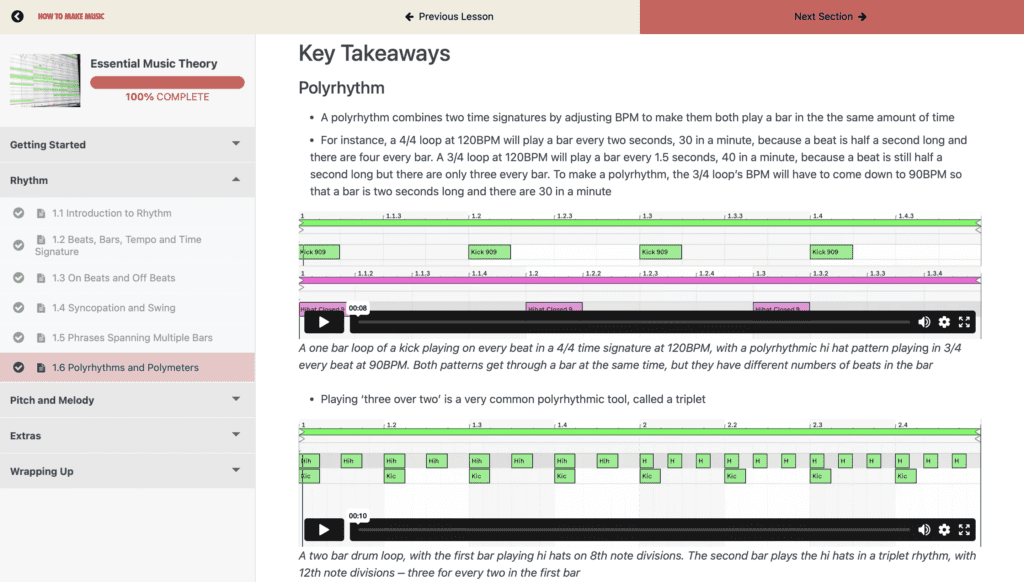
Pitch and Melody
Next, we’ll look at pitch and melody, going right from the fundamentals of how we even recognise sounds as pitches and why different pitches work together all the way through to everything you need to understand to be able to make emotionally captivating music. Every section has a main lesson video plus all the Key Takeaways:
- Introduction to Pitch and Melody
- Pitch
- Introduction to Scales
- Scale Degrees and Intervals
- Motifs
- Chords
- More Complicated Chords
- Chord Quality, Implied and Suspended Chords
- The Circle of Fifths
- Consonance, Dissonance, Tension and Resolution
- Progression
- Cadences
- An Important Connection: Harmonic Minor
- Non-Diatonic Notes
- Popular Chord Progressions
- Fundamental Techniques for Harmonising
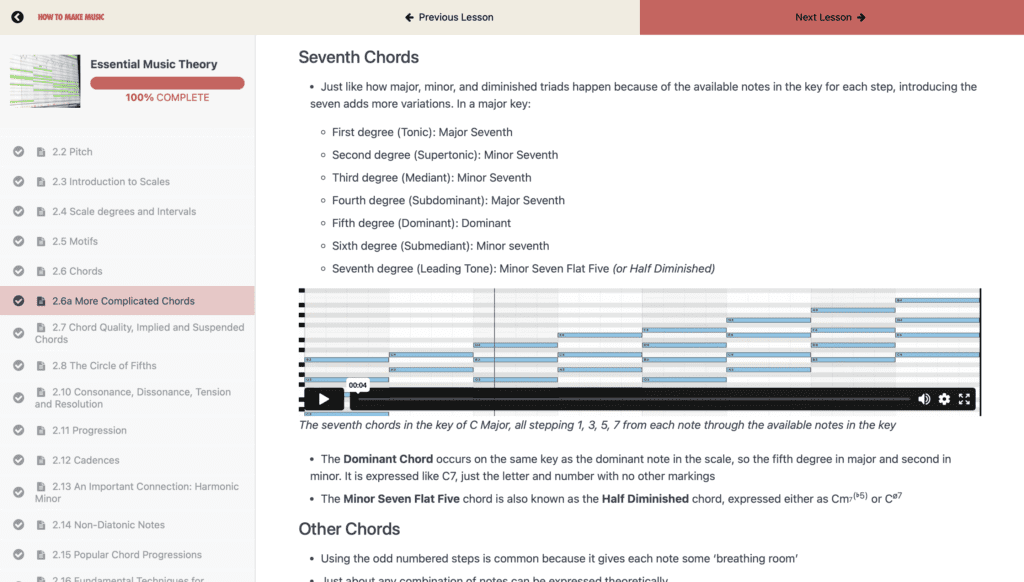

Extras
We’ll wrap up with the importance of some advanced concepts and use our newfound knowledge to understand them, as well as explore various methods of notation and consider how we can make more interesting music by considering sound as more than just pitch and rhythm. Every section has a main lesson video plus all the key takeaways:
- Synonym Chords
- Modes
- Notation
- Timbre, Dynamics, and Articulation
Music theory isn’t boring and bookwormy, it’s a vital part of expressing how to make music and takes all the guesswork out of getting what’s in your head into your sequencer. At £99 this is crazy value, and might be the best music related purchase you’ll ever make. If you want things to just ‘click’, then this is the course you need.


